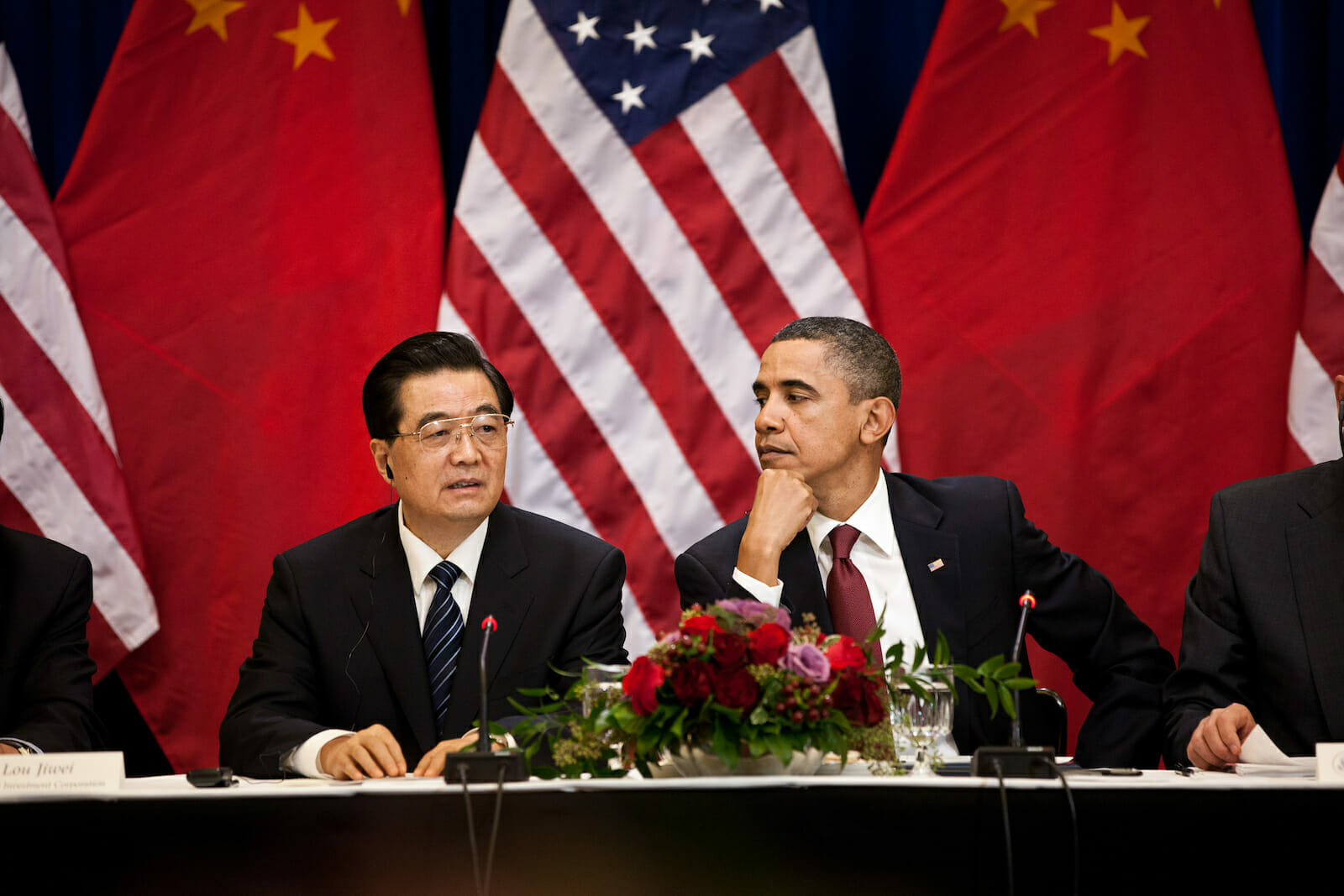
Left Behind: Re-Evaluating American Hegemony
Over the past decade, amidst appalling civilian casualties in one war of questionable legality and another of dubious wisdom, American foreign policy became the great bogey-man of the political left the world over. For liberal Americans, the bullish behavior of the Bush Administration induced the pretension of Canadian citizenship abroad and a previously unimaginable mainstream audience for leftist favorites Howard Zinn and Noam Chomsky at home. Polled Europeans named the United States as the greatest threat to world peace.
Failure to intervene in Darfur only added further evidence to the conclusion that American foreign policy was, as Bill Clinton said in reference to Rwanda, driven by American interest, and American interest alone. Just as American foreign policy seemed excessively unilateral, Europe’s cohesive opposition to the Iraq campaign rendered perceptively possible an alternative world order.
In a decade in which the United States was the lawless school bully and Europe the measured school principal, when principled Continental opposition illuminated self-interested American hubris, America’s critics had the luxury of imagining a rules-based international system characterized by regulations governing everything from torture to pollution. With this alternative in mind, liberal-leftists were right to leverage a no-holds-barred critique of the ends to which the United States leveraged its hegemonic might.
Yet three intersecting geopolitical trends of the past half-decade have set the vision of an EU-influenced, rules-based world order decisively beyond reach, and, in so doing, forced a reevaluation of comprehensive condemnations of American hegemony.
The first of these is the tempest in a tea-pot that the European sovereign debt crisis has become. By sowing division both between Germany and France, and the wealthier northern countries and their poorer southern counterparts, the crisis has collapsed the Continent’s focus onto its own troubled future. One of the crisis’ many costs has been the coordinated, liberal foreign policy many hoped would be the consequence of further integration.
With the dead man of Europe the European integration project itself, the prospects of Europe injecting a dose of civilization into international politics by way of the courteous sensibility of its post-colonial foreign policy is now less than dim. In place of European liberalism has risen an Axis of Convenience between Russia and China. This tepid alliance, apparent in coordinated efforts to frustrate intervention in Libya, and, more damagingly, Syria, is the consequence of each government’s anxiety that the precedent of multilateral humanitarian intervention might one day move eastward to Chechnya, Georgia, Tibet, Xinxiang, or even Beijing and Moscow.
Thus the essential lesson of the Arab Spring for liberal-leftists once fuming with anti-American condemnation is that a world in which China exercises greater influence is a world in which the occasional benevolence of American hegemony –so easy to overlook in the mid-2000s, when the likes of Chomsky were prepared to argue that even Kosovo was an instance of self-aggrandizing imperial realpolitik– is less accessible to the prospective victims of Gaddafi’s would-be Benghazi slaughter.
For as China’s GDP constitutes an ever larger proportion of the world economy, the probability that Western Europe and the United States can and will exercise diplomatic muscle in cases of Chinese objection to humanitarian intervention dramatically decreases.
This emerging recognition comes just as the United States has revitalized its humanitarian credentials via the Libyan intervention. For despite their best efforts, even the most articulate reductionist leftists have been unable to find the hidden realpolitik of what the Chomsky worldview refuses to accept as a purely humanitarian affair. Instead, the Libyan affair stands as a testament to the efficacy of coordinated western benevolence. Each of the conditions absent in the misguided Iraq operation distinguishes the Libyan intervention: multilateralism, a genuinely pressing humanitarian threat, calls for intervention from local dissidents and the Arab League alike, and leashes both fiscal and temporal.
The juxtaposition of American leadership in this regard with Chinese obstinacy on Syrian sanctions and its long-delayed recognition of the Libyan Transitional Council offers liberal humanitarians a clear choice between vying hegemonic orientations.
This is not to suggest that liberals ought to drop legitimate criticism of American foreign policy. Nor is to condone the chest-thumping “We’re Number One” congratulationism of the American Right. Nuanced criticism concerning continued support for dictatorial Middle Eastern regimes, an Israeli state whose territorial embezzlement continues to blunt the possibility of Palestinian statehood, the potentially prolonged occupation of Afghanistan, and excessive military presence from Germany to Okinawa remains indispensable. Such reproach is as necessary today as Henry David Thoreau’s principled objection to the imperial Mexican conquest or student opposition to the Vietnam War were in their own time.
As ever, the military-industrial complex and turf-maximizing State Department bureaucrats can hardly be left to their own accord. And scholarship concerning the pitiful record of anti-democratic Cold War interventionism still forms the vital process of historical re-evaluation that is fundamental to democracy itself. Yet given the infeasibility of a European rules-based alternative, it would be foolish for liberal-leftists to hold their collective normative breathe for the end of the United States’ half-century hegemonic reign. The blemishes of America’s post-war rule will not be washed clean by a more influential China or Russia; rather, they will be exacerbated to the further dismay of the United States’ most vocal humanitarian critics.
Given the geopolitical changes of the past half-decade, only those blinded by moral outrage over American decisions long since made and appropriately condemned would choose inconstant American benevolence over decisive autocratic apathy.

